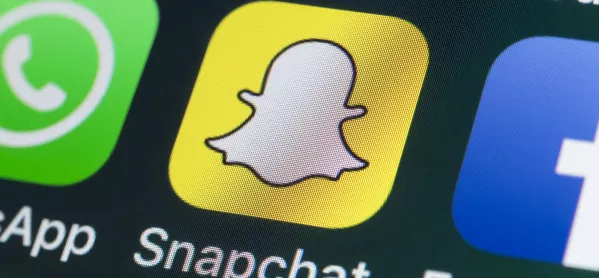Snapchat is being used by the Department for Education to nudge pupils into choosing to study a modern foreign language at GCSE.
A DfE video posted on the social media platform shows pupils reaping the benefits of knowing a foreign language: including playing video games online against opponents around the world, texting people around the world and “playing football in Spain”.
The DfE says the video was posted too late to be a factor in helping the revival in GCSE languages entries this year, for which it says it has still to do analysis.
GCSEs 2019: Grades up slightly but stability reigns
Insight: GCSE English language ‘should be replaced’
Quick read: German GCSE skiing question highlights ‘class biases’
But the Snapchat video is one of a number of measures being taken to pique pupils’ interest. These include the opening of the country’s first modern foreign languages centre for excellence, a £4.8 million centre based within the University of York that coordinates the work of nine MFL hub schools across the country to promote pioneering teaching practices.
Giving GCSE languages a boost
“In addition to this, we have launched a pilot project where undergraduates mentor secondary school pupils in MFL to drive up participation in the subjects, specifically targeting areas of high disadvantage to extend access to languages to all pupils,” a DfE spokesperson said.
The DfE admitted last year that it was “struggling hugely” with numbers of entries and that the situation “was getting worse.”
But entries to MFL GCSEs rose 3 per cent overall this year, despite fears about the influence of Brexit and that tougher new GCSEs were putting pupils off.
This year’s entries in French were up by 3.2 per cent to 130,931 while Spanish entries were up by 7.5 per cent, passing the 100,000 mark for the first time ever at 102,242, according to the figures published by the Joint Council for Qualifications
However, German entries were down 3.9 per cent to 42,791 and all other MFL subjects collectively fell by 1.9 per cent to 32,183.
Teresa Tinsley, co-author of the British Council’s “Language Trends 2019” report, which highlighted a 19 per cent reduction in entries for GCSE languages in England over the previous five years, said: “I think any talk of revival is a bit strong. The increase has mainly come from Spanish, which has been bucking the trend anyway.
“And I’m sure many schools have been doing all they can to prevent further declines. But we’re still below where we were before the EBacc was introduced in 2011.”
Benoît Le Dévédec, of the French Cultural Institute, in central London, said: “Languages are bridges between countries and are most valuable for future jobs and social mobility.
“With over 300 million speakers in the world and on the five continents, French is a fast-growing global language that plays a key role in international relations, business and democracy among nations, and it is also one of the most sought-after by employers and institutions in this country.”





